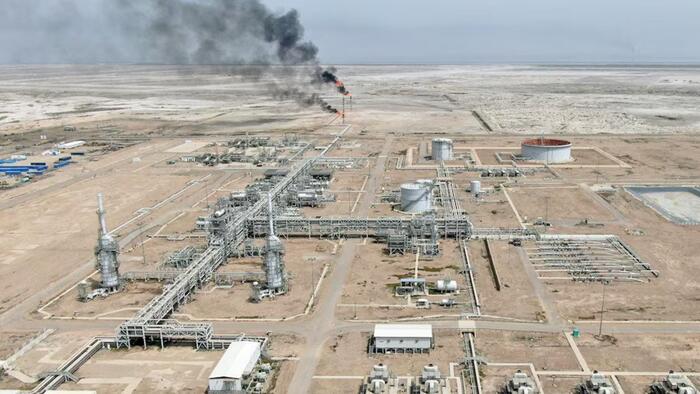


Iraq will sign an agreement with Texas oil major, ExxonMobil, to manage, develop, and operate the Majnoon oil field in the country’s south, three Iraqi officials familiar with the matter told Reuters on Thursday.
The deal will also cover upgrades to Iraq’s oil export infrastructure in the south and include a profit-sharing arrangement for crude and refined products. Iraq's State Organization for Marketing of Oil (SOMO) is expected to formalize the agreement alongside ExxonMobil and the state-owned Basra Oil Company.
According to Bloomberg, the US-based energy giant has reached a non-binding heads of agreement with Baghdad to re-enter Iraq two years after its withdrawal.
Iraqi Prime Minister Mohammed Shia al-Sudani confirmed the preliminary deal but did not disclose details. An Exxon spokesperson told Reuters, “We are pleased to have signed an HoA with the Iraqi Oil Ministry to evaluate exploration, development, and oil marketing opportunities in Iraq.”
The Majnoon field, located around 60 kilometers from Basra, is among the largest in the world with an estimated 38 billion barrels of oil in place. The agreement is meant to secure storage capacity in Asian markets, potentially through Exxon’s facilities in Singapore.
Former Basra Oil Company operations manager and analyst Muwafaq Abbas said the deal reflects Iraq’s push to modernize its energy sector and recalibrate ties with Washington.
“The deals carry political weight, signalling Baghdad’s intent to rebalance regional ties and deepen its integration with western markets,” he said.
ExxonMobil was one of the first western companies to return to Iraq after the 2003 US invasion, but exited the West Qurna-1 project in 2024, citing unsatisfactory returns and political complications. The agreement coincides with a surge of Chinese-led projects reshaping Iraq’s southern oil hub.
In September, China Petroleum Pipeline Engineering (CPP) signed a $2.5-billion deal to build a 950-kilometer seawater distribution system supplying Majnoon and other fields, designed to sustain production by maintaining reservoir pressure.
In July, PowerChina secured a $4 billion contract for Iraq’s first major seawater desalination plant in Basra, a project that will feed industrial and energy operations across the region.
At the same time, Chinese private oil companies plan to double their collective output in Iraq to 500,000 barrels per day (bpd) by 2030, reflecting Beijing’s expanding control of mid and downstream infrastructure.
Iraq, which holds some of the world’s largest oil and gas reserves, aims to raise production from around 4 million bpd to more than 6 million by 2029.
